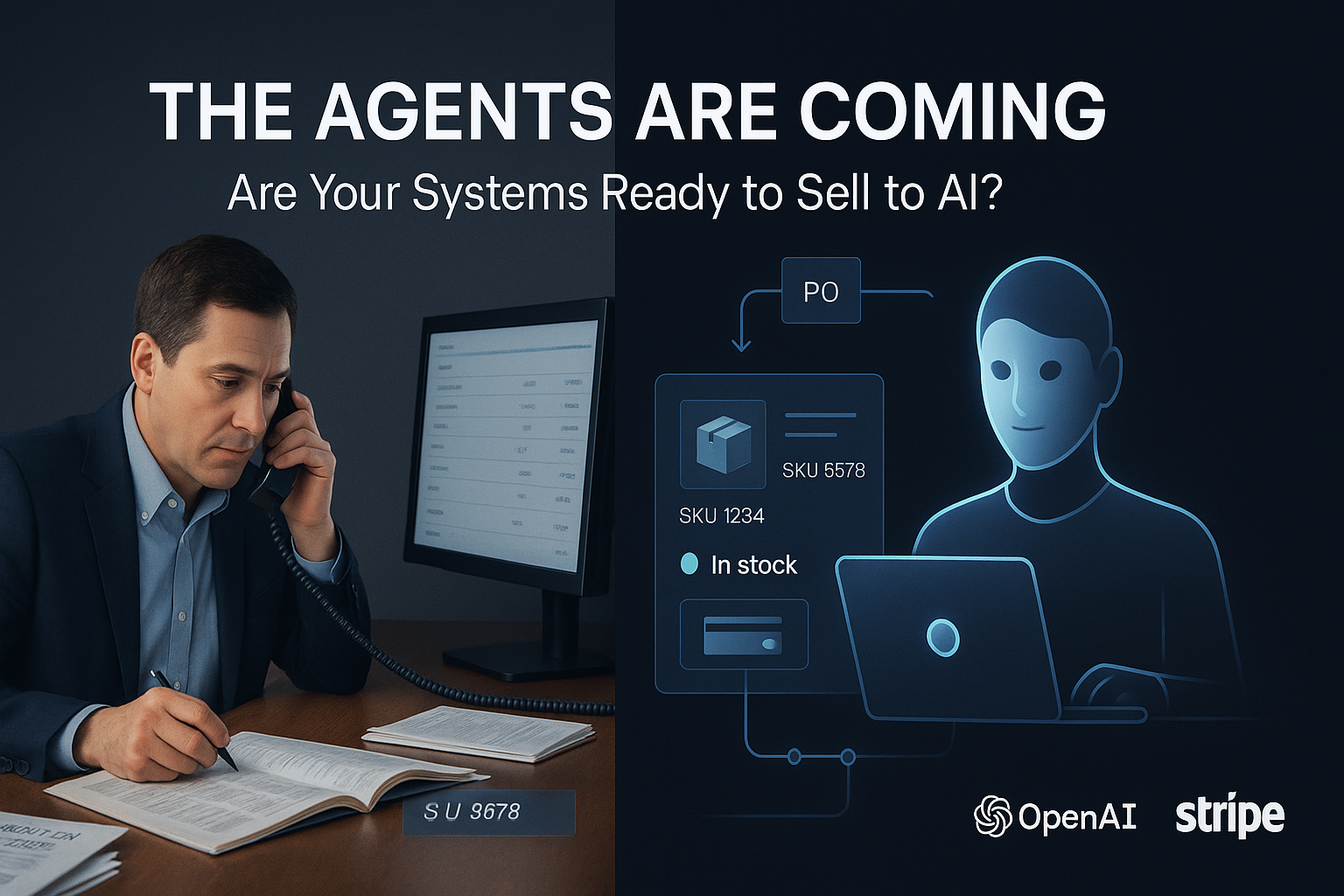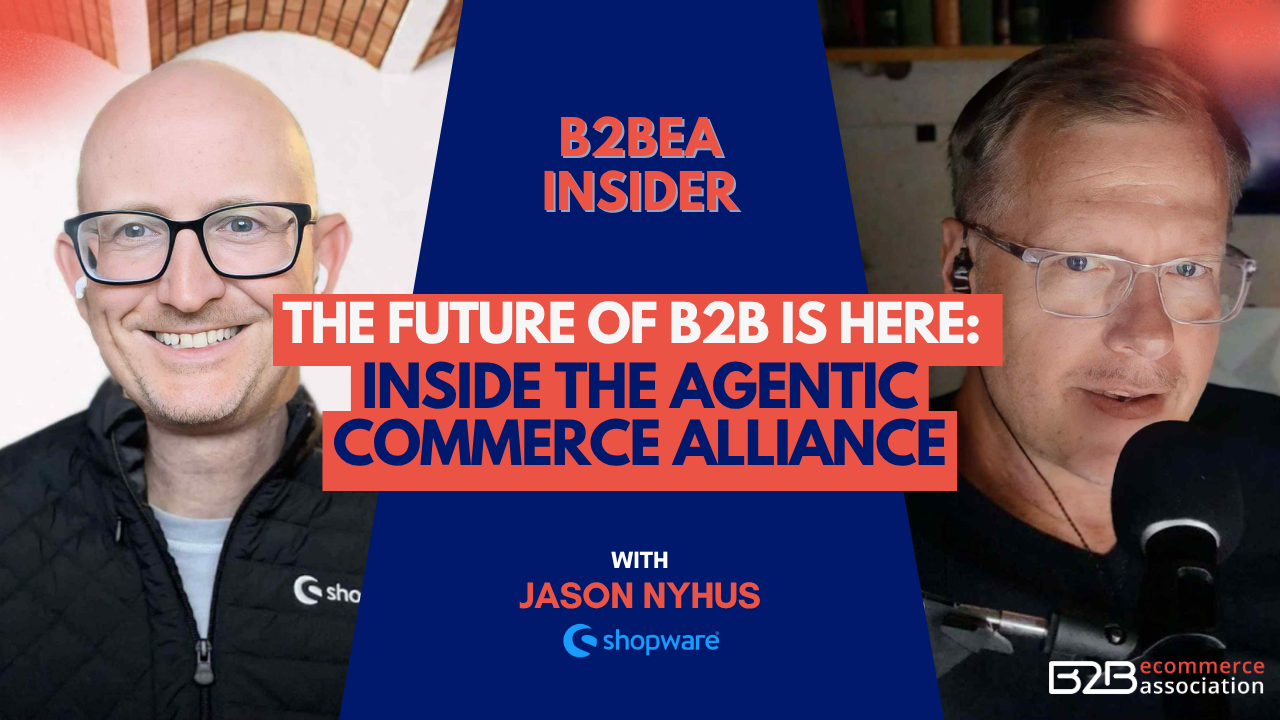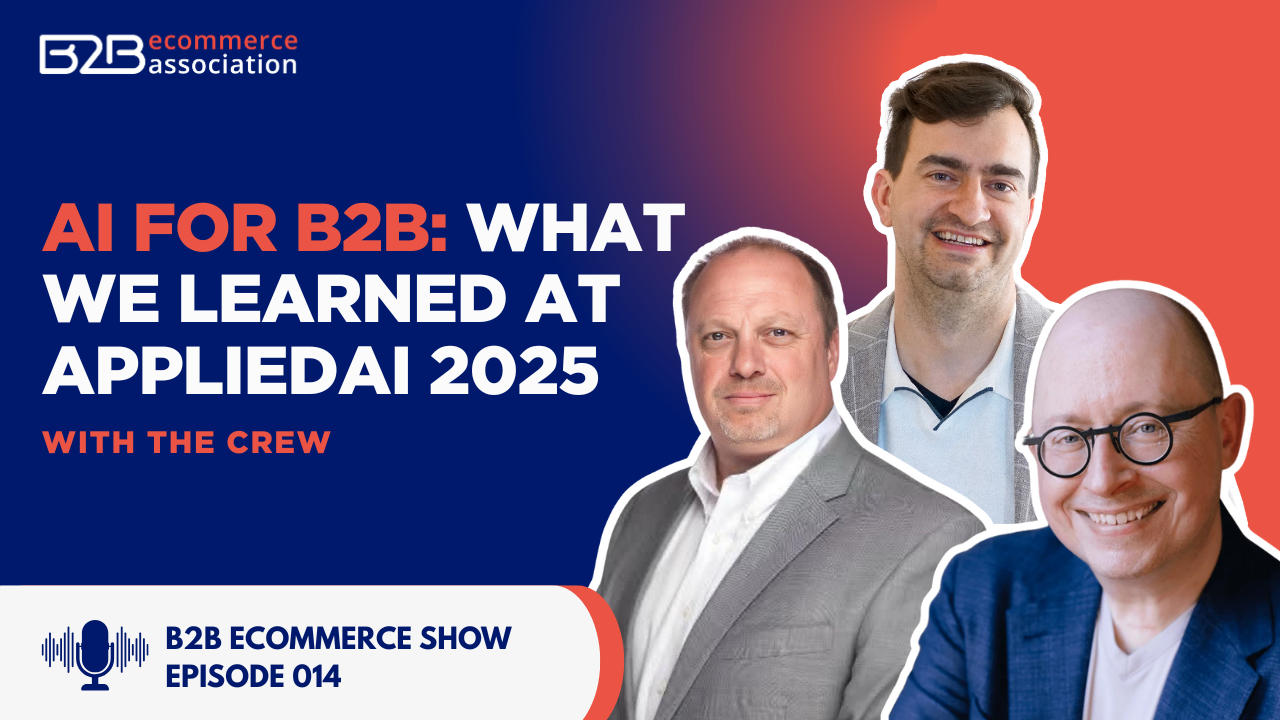AI Tools for Personal Use, Amazon, and the Future of B2B eCommerce with The Crew
In a wide-ranging, deeply thoughtful conversation, a group of B2B eCommerce and technology leaders came together to tackle one of the most pressing questions facing the industry today:
In a world where AI is everywhere, what role do people still play?
The Age of AI: Tools, Experiments, and Boundaries
From ChatGPT and Gemini to Claude, Perplexity, and niche tools like Dripify and MindStudio, AI is now embedded in the day-to-day work of modern professionals. These tools are used for everything from sales automation and research aggregation to writing blog posts and running LinkedIn outreach campaigns.
But as Jason Greenwood pointed out, while these tools are incredibly powerful, they’re only as good as the people using them:
AI is like your gut instinct, based on collective knowledge, but it still needs your judgement to make the final call.
Others in the group echoed this, emphasizing the importance of “training” AI like you would an employee. As Justin said,
If AI is your assistant, then teach it how to think like you, but also teach it how to challenge you.
Personalization vs. Hallucination
The conversation also highlighted an emerging paradox: AI is becoming so good at mimicking your preferences that it may start telling you only what you want to hear.
Steven Javor warned: It’s like a digital girlfriend saying exactly what you want, but not necessarily what’s right.
This raised broader questions about trust, objectivity, and whether AI can truly replace human decision-making.
Human Touch in a Digital World
As B2B eCommerce becomes more digitized and AI-driven, what happens to the human relationship, the sales call, the trade show conversation, the handshake?
Jason Greenwood believes this is where the biggest opportunity lies: Future generations may push back on the simulation of human emotions and crave real, personal connection. That’s where distributors and salespeople can shine, by being authentically human.
Steven Javor echoed this, emphasizing the resurgence of community and in-person engagement:
I’m doubling down on live events, podcasts, and real-world friendships. AI can’t replace the feeling of a Friday night potluck with people you trust.
B2B’s Cultural Divide: Amazon vs. Everyone Else
The discussion inevitably turned to Amazon. Why has Amazon Business scaled while so many traditional B2B companies struggle with digital transformation?
Jason Greenwood, a former Amazon insider, put it bluntly: Amazon has digital DNA. Most B2B companies do not.
This cultural mismatch, between tech-native platforms and product-centric businesses is the root of many integration and strategy failures in the B2B space.
Steven Javor added that platform vendors and B2B sellers often “speak different languages,” with one prioritizing speed and scale, and the other focusing on legacy relationships and operational nuance.
What’s Next for B2B?
As AI continues to evolve, the panel sees a bifurcation coming:
- Transactional processes will be increasingly automated.
- Relationship-driven processes will become even more human.
And that’s exactly where the future of B2B may lie: In blending digital efficiency with human empathy, and creating experiences that are scalable but still feel personal.
There’s so much upside for companies who know their product and customer.
Greenwood said, if they can integrate even a little digital DNA, they’ll be the ones who win the great share swap.
Bottom Line:
AI is powerful, but humanity is the differentiator. In the race for digital transformation, the winners will be the companies that don’t just go digital, but stay human.








